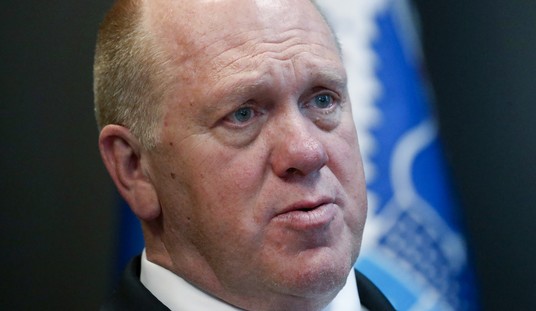
From BBC https://www.bbc.com/news/world-middle-east-45404086
Syria Withdrawal Part IV: Conclusion-Way Ahead
The first three parts of this series outlined President Trump’s decision to quickly and forthrightly disengage from U.S. Military operations in Syria. They also generally described the current situation in this particular area of interest.
Yesterday morning, I had the opportunity to call in to the David Webb show on Sirius XM, where Webb had an interesting guest, Dr. William J. Parker, President and CEO of the East West Institute, a non profit that specializes in international conflict resolution. After a brief introduction by Webb, Dr. Parker gave an outstanding overview of all the players, their objectives and the current situation on the ground. He actually reiterated many of the points covered in Parts I, II & III of this series. He even added one I was holding for today’s piece, the effects of the now 103-year-old, Sikes-Picot agreement. The Sikes-Picot agreement is the post World War I poster boy for the Western Powers’ belief that drawing a straight line on a map without regard for tribe, nationality, or religion, couldn’t possibly have adverse consequences over a century later. More on this further down.
Mr. Webb and I had the opportunity for a quick chat after Dr. Parker signed off. After I reviewed the main points of tension, I asked him a direct question:
As President Webb, what do you see as your desired endstate 5 years from now? We have to establish a desired result and then, of course, work backward to produce a plan to get us there.
His answer surprised me:
Nothing. We need to let it play out and react to events as they happen.
Webb went on to say, like his guest Dr. Parker, that the last thing we want to do is emulate Sykes-Picot and start drawing arbitrary lines again. Honestly, I get that and agree. Mr. Webb’s response was clearly focused on the ugly lessons learned from Sikes-Picot—imposing our view of the world on other folks and the ugly results that still cause issues over a century later. Nobody looking at the mess today’s Middle East has become, could possibly argue with that—and I certainly won’t.
However, I’m not sure about a wait then react process. If we cannot imagine what we want the endstate to look like, how can we even dream of getting there? Having said that, we also know in the real world, no matter how altruistic our objective may be and how hard we try, we can likely count on…less.
In the world the United States would like to see, all of our international associates, friends (Great Britain & the rest of the 5 I’s) and allies, long term or of convenience (Turkey & the Kurds) all like each other. However in the real world we live in, we need to settle for something less, like the relationship between Israel and Egypt. For quite some time following the Camp David Accords, their relationship was often described as, “formally correct.” At that time, both sides cordially despised each other but had come to the realization (thank you, Anwar Sadat) that they could indeed (and needed to) cooperate without killing each other. Today, Egypt-Israel cooperation, although not at the “5 I’s,” level, is far more friendly, especially when dealing with the Muslim Brotherhood. The question then becomes, how to we achieve this kind of relationship between Turkey and the Kurds, PKK, Syrian, and Iraqi? What would this endstate look like?
Seemingly opposite of Mr Webb’s “let it play out” and react as necessary option, Richard Fernandez penned this, emphasis mine:
With the Arab Spring and political opposition to OIF ending the hope of “bringing democracy to the Middle East,” some sort of repartition of the region, a redrawing of boundaries, seems the sole alternative.
With Turkey’s entry, we are perhaps witnessing the de facto partition of Syria with Kurdish borders dependent — if any are preserved — on how far the U.S. will pull back and what line they are willing to defend. But a stand-fast solution would require generational political will and boots on the ground. It will entail confronting a NATO ally and it won’t be free. The question is whether the public is willing to pay.
If America midwifes a Kurdistan, it must see it through, for it may only be popular in the first weeks. Kurdistan could be a “future Israel,” whose origin will be America’s eternal crime in future Left-wing history. As Brandon Weichert noted, partitions create centuries-long enmities.
What Fernandez, Weichert and my radio mentor David Webb focus on, is the word “force.” Fernandez even posits a requirement for American “boots on the ground.” Sykes-Picot was all about white Europeans deciding what was good for the “bloody wogs”** and forcing it down their throats, regardless of tribe, religion, or familial association. This time around, it could be different—by just removing the element of force and instead, asking for buy-in.
Positing an endstate where the Kurds—all three major groups–have a place to call home, is a start. However, Sykes-Picot (and David Webb) has shown us that forcibly carving out territory from other folks’ property is a nonstarter, fostering hate, discontent and violence for decades. The way to go about this is to involve all the stakeholders…except of course, ISIS, Russia and Iran. And yes—that means President Bashar Al Assad of Syria. Stupidly wanting to depose him was what got us into this mess in the first place.
Syria, Turkey, and the 3 major Kurdish groups, with the good offices of the United States, could, with some effort and recognition of all parties’ interests, birth a voluntary agreement. This could not only provide the Kurds an internationally recognized homeland, but also form a regional coalition that could totally defeat ISIS. This might not be as hard as it would appear at first blush. The two actors that would be the least difficult to move on this would seem to be Iraq and Syria. In Iraq, the Kurds already govern their semi (defacto, totally) autonomous territory. In Syria, President Assad, at this point, exerts little to no control over his Northeastern territory and has very little leverage. An agreement that helps keep him in power and lessens his reliance on Russian occupation assistance would almost certainly ease the transfer of some of his territory to help build a Kurdish homeland.
That leaves Turkey. This series began recognizing that Turkey is the key to this entire region for the United States. It will be an especially difficult partner in this effort. The United States needs Turkey as a loyal NATO partner more than President Erdogan needs the U.S. President Erdogan’s hostile attitude notwithstanding, PKK terrorist operations make it difficult for the 80 percent of the Turkish population who are not Kurds to support any form of rapprochement.
The keys to moving forward here are the Iraqi and Syrian Kurd territories. If Erdogan can, over a 2-3 year period, be convinced that those territories and their Kurdish populaces are not providing support for the PKK but instead are assisting in running ISIS and other terror groups to ground, then he could possibly be persuaded to negotiate a small Turkish contribution to the new territory of Kurdistan.
Dr. Parker and David Webb are correct. We cannot jam this down anyone’s throat…except perhaps President Assad’s. However, if we can convince the right stakeholders that they could benefit from this, then we might avoid the mistake of Sykes-Picot.
This is just one option. There are almost certainly other ideas out there that have a greater likelihood of success. The purpose of this series is to move our thinking in a different direction than one that requires a continual hemorrhage of American blood and treasure. Ultimately, it comes down to…
“The hardest thing I do, is write letters to parents and spouses of OUR troops killed in combat overseas.”
– President Donald J. Trump
** “wog,” in 1916, when Sykes-Picot was signed, was as commonly used as the “n” word. It was then and even more so now, a racial slur, of the highest order. I used it in this piece, to convey the sheer arrogance and assumed superiority of Sikes-Picot
David Webb Show is on Sirius XM, Channel 125, M-F 9-12:00EST
The below links, provide some detail used to produce this article:
The Fate of the Kurds: Repartition of the Region Seems the Sole Alternative
The Kurd In the Punch Bowl-Brandon Weichert
Mike Ford, a retired Infantry Officer, writes on Military, Foreign Affairs and occasionally dabbles in Political and Economic matters.
Follow him on Twitter: @MikeFor10394583
You can find his other Red State work here.












Join the conversation as a VIP Member